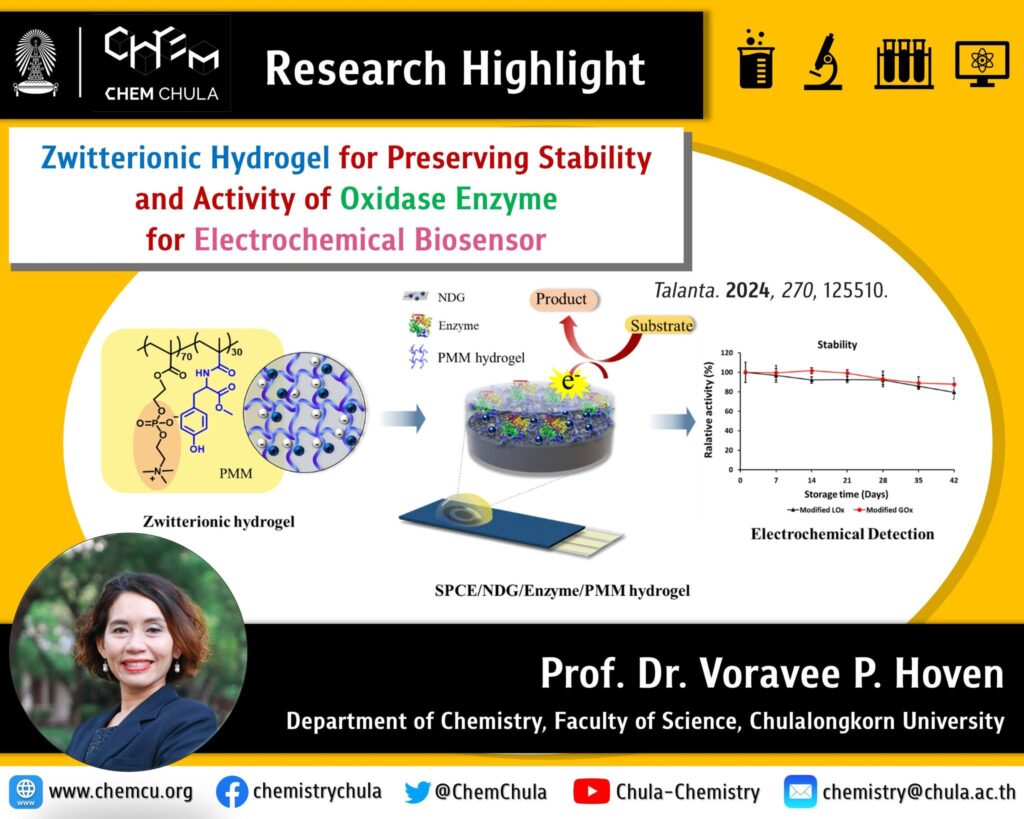Contemporary medical diagnosis relies on sensors, particularly enzyme-based electrochemical biosensors, to detect disease markers due to their high specificity and sensitivity. However, enzymes as biomolecules denature over time, causing the sensor being less reliable. This research aims to develop hydrogels capable of decreasing the rate of enzyme denaturation in order to extend a lifetime of enzyme-based electrochemical sensors from zwitterionic polymer. The developed hydrogel has high water swelling ability, resists adsorption of non-specific proteins, and maintaining enzyme function. Hydrogel was derived from two monomers, namely 2-methacryloyloxyethyl phosphorylcholine (MPC) and N-methacryloyloxyethyl tyrosine methylester (MAT). By applying with glucose oxidase (GOx) and lactate oxidase (LOx) by coating on a screen-printed carbon electrode (SPCE). From electrochemical analysis, the hydrogel can maintain enzyme activity for up to two months which typically lasts only around two weeks. This research has demonstrated the potential of the developed hydrogel for the advancement of biosensor that can be applied for other medical diagnostics.
- Benjawan Somchob
- Nadtinan Promphet
- Nadnudda Rodthongkum
- Voravee P. Hoven

